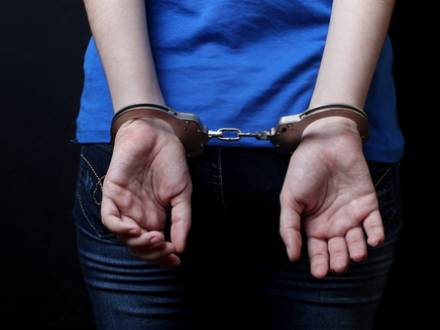Why Is Incarceration Harmful for Minors Charged With Juvenile Crimes?
 While the threat of juvenile crime is something discussed by politicians who pledge to crack down on offenses that could put public safety at risk, the rates of these types of crimes have decreased significantly in the past couple of decades. Despite these trends, the legal system continues to treat juvenile offenders harshly, and in many cases, minors who are charged with juvenile offenses are incarcerated in juvenile detention facilities. Even though the juvenile justice system is meant to rehabilitate offenders, incarceration often has the opposite effect, causing significant harm to children that can affect their futures.
While the threat of juvenile crime is something discussed by politicians who pledge to crack down on offenses that could put public safety at risk, the rates of these types of crimes have decreased significantly in the past couple of decades. Despite these trends, the legal system continues to treat juvenile offenders harshly, and in many cases, minors who are charged with juvenile offenses are incarcerated in juvenile detention facilities. Even though the juvenile justice system is meant to rehabilitate offenders, incarceration often has the opposite effect, causing significant harm to children that can affect their futures.
Because of the ways children are likely to be affected by the penalties imposed in juvenile cases, it is important for families to work with a lawyer who has experience defending children against charges of juvenile delinquency or crimes that could be prosecuted in adult court. With legal representation, a child is more likely to secure an outcome that will protect against overly harsh penalties and ensure that they can avoid long-term consequences.
Studies Find Numerous Problems With Juvenile Incarceration
Reports about the conditions in juvenile detention facilities throughout the United States are regularly released, and they often detail troubling findings. One of the most recent examples involves a report from the Maryland Juvenile Justice Monitoring Unit that detailed sexual abuse at a youth detention center. Other similar reports in Maryland have found that numerous children involved in the state’s juvenile justice system have experienced sexual assault, while also detailing concerns about the safety and well-being of children who are incarcerated.
These are just a few examples of reports detailing the harm that children can suffer when they are removed from their homes and held in the custody of state officials. In 2022, The Sentencing Project performed a detailed study of the effects of juvenile incarceration. It noted many reasons why incarcerating minors in detention facilities is more likely to cause harm to children and society as a whole, including:
-
Juvenile incarceration does not reduce recidivism: The purpose of the juvenile justice system is to rehabilitate offenders and help prevent them from committing offenses in the future while ensuring that they can live as productive members of society. However, studies have shown that minors who are released from juvenile detention facilities are re-arrested at high rates, and they are more likely to receive new juvenile delinquency adjudications or be convicted of criminal offenses in adult courts.
-
Juvenile incarceration makes minors less likely to succeed in obtaining an education or securing employment: Children who have been incarcerated are less likely to graduate from high school. They are also less likely to enroll in college, and the incomes they earn as adults are lower.
-
Juvenile incarceration leads to poorer physical and mental health: Minors who have been held in juvenile detention facilities are more likely to experience physical health issues such as vision, hearing, and dental problems, as well as injuries and illnesses. They are also more likely to suffer from mental health issues like depression, post-traumatic stress disorder (PTSD), and suicidal thoughts or behaviors.
-
Minors who are incarcerated may experience abuse or mistreatment: As mentioned above, many reports have found that children incarcerated in juvenile detention facilities are at risk of physical or sexual abuse by staff members or peers. Minors are often subject to harsh treatment that can put their safety, health, and well-being at risk.
-
Racial disparities affect minors in the juvenile justice system: As is true in the adult criminal justice system, minorities are more likely to be incarcerated in juvenile facilities, and they are more likely to be subject to harsh penalties. Biases against Black children and other children of color lead to higher rates of arrest and adjudications of juvenile delinquency.
Contact Our Connecticut Juvenile Crime Defense Lawyers
Because of the risks that children face when they are charged with juvenile offenses, legal representation is crucial in these cases. At Woolf & Ross Law Firm, LLC, our Hartford juvenile offenses attorneys can provide families with legal help in these situations, working to resolve cases in ways that will minimize the effects on a child’s life and prevent them from being subjected to harsh treatment in a detention facility. Contact our firm today at 860-290-8690 to set up a free consultation.






